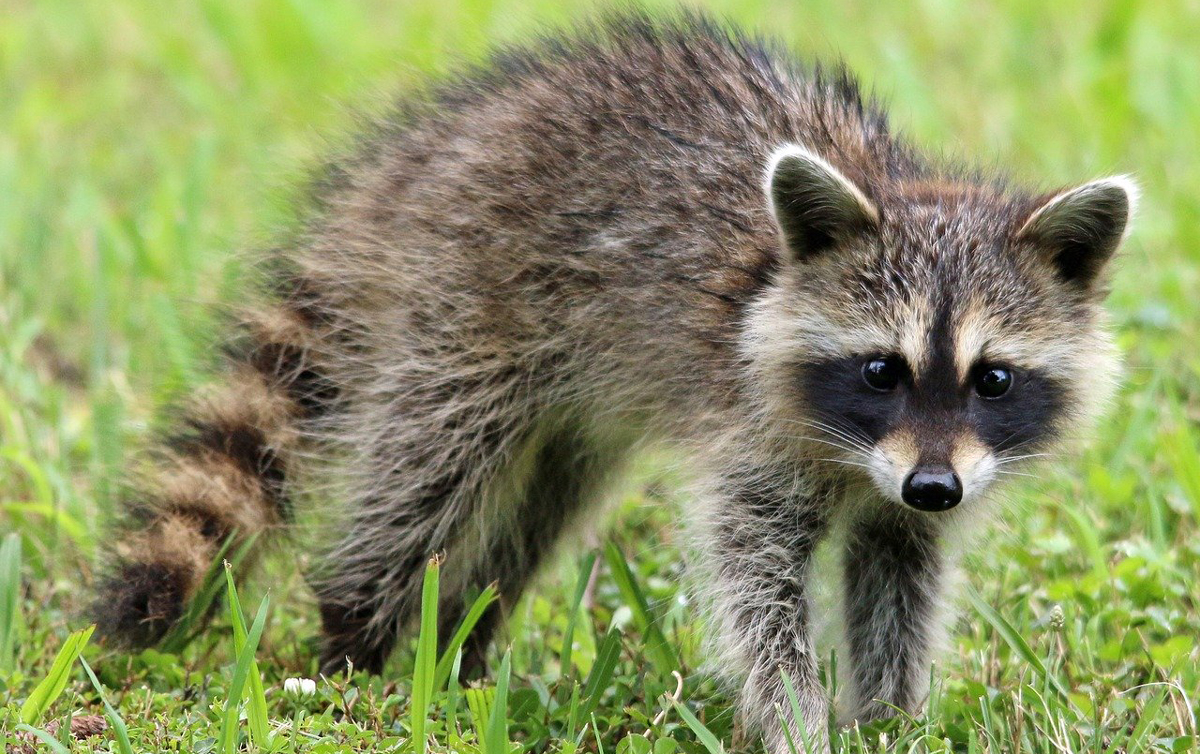
DWR reminds public about not illegally keeping wildlife
By Faith Jolley
Baby animals are often hard to resist, especially wild baby animals. Utahns often come across baby wildlife while recreating outdoors, but it is important not to pick them up or take them home.
A 5-year-old boy was significantly scratched by a family’s pet raccoon in Uintah County on Dec. 11, 2019, requiring emergency surgery. Because of this recent incident, the Utah Division of Wildlife Resources and the Tri-County Health Department would like to remind the public about the dangers and legalities of trying to keep a wild animal as a pet.
Illegal to possess wildlife without proper permits
Some wild animals are not protected under Utah state law, meaning that you do not have to possess a valid hunting or trapping license to harvest them. However, there are different rules in order to keep one in your possession.
Wild animals like raccoons (which are not native to Utah) and coyotes require a permit issued by the Utah Department of Agriculture in order to house them in captivity. The importation, distribution, relocation, holding in captivity or possession of live coyotes and live raccoons in Utah is governed by the Agricultural and Wildlife Damage Prevention Board and is prohibited under Utah Code Section 4-23-11 and Rule R58-14, except as permitted by the Utah Department of Agriculture and Food.
Unpermitted animals may be seized immediately by the DWR, Department of Health, the Department of Agriculture and Food, animal control officers, or peace officers if the person possessing the animal cannot produce a valid permit for each individual animal. The following wild animals are considered non-protected wildlife in the state of Utah:
—Raccoons.
—Striped skunks.
—Coyotes.
—Red foxes.
You may be written a citation for illegally possessing these animals, which is a Class B misdemeanor.
“It’s important to protect the health, welfare, and safety of the public, as well as other terrestrial wildlife,” said Tonya Kieffer-Selby, DWR outreach manager. “We do not want the public to avoid supporting wildlife, but we do want people to do it legally and safely.”
Disease concerns
Diseases, viruses, and parasites from non-protected wildlife can be transmitted to humans and pets via saliva, feces, or urine. Viral diseases of raccoons include rabies, canine distemper, raccoon parvoviral enteritis, infectious canine hepatitis, and pseudorabies. Raccoons can also carry and transmit Leptospirosis and toxoplasmosis, which can be lethal for unborn babies.
Raccoons can also be infected by a Baylisascaris parasite, which is caused by a roundworm. Raccoons seldom display any symptoms of having these roundworms and can transmit them via their feces. If infected, this parasite can cause extreme damage to the human eye, organs, and brain. Chemicals do not kill roundworms or their eggs, so it is extremely important to avoid coming into contact with feces and to wash your hands when outdoors.
“If you do experience a suspicious bite, seek medical attention; local healthcare providers are educated on how to handle these situations,” said Cynthia Mattinson with the Tri-County Health Department. “We work closely with our hospitals, emergency departments, emergency medical services, and clinics to ensure the safety and health of the public during these kind of incidents.”
What to do if you come across a baby wild animal?
Typically, when people encounter a baby animal in the wild, that they think has been abandoned but its mother is actually nearby. It is recommended to leave the animal where you found it and to not touch it. If you do have concerns, please contact the nearest DWR office.
For more tips about how to safely live with wildlife, visit the Wild Aware Utah website.
Articles related to “DWR reminds public about not illegally keeping wildlife”
Wildlife highway crossings, fences installed in Utah in 2019 to help prevent collisions
These six local wildlife species have unique winter prep routines



